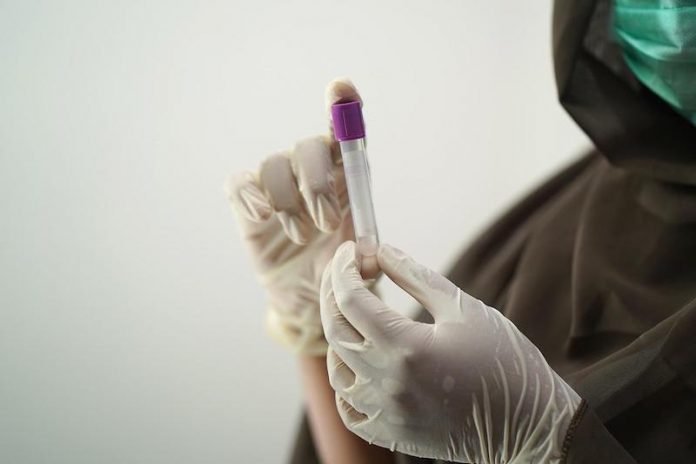
Scientists from UC San Francisco found biomarkers that may persist for many months in the blood of patients who had long COVID with neuropsychiatric symptoms.
The results hold promise for the development of lab tests to gauge long COVID risks.
The research is published in the Annals of Neurology and was conducted by Michael Peluso et al.
The neuropsychiatric disorder is a medical term that encompasses a broad range of medical conditions that involve both neurology and psychiatry.
Common neuropsychiatric disorders include seizures. attention deficit disorders. cognitive deficit disorders.
Long COVID is characterized by continuing or newly arising symptoms such as fatigue, shortness of breath, cognitive difficulties, heart rhythm abnormalities, sleep disorders, and muscle and joint pain, that may linger for months after acute infection with the SARS-CoV2 virus.
Researchers estimate that between 10% and 30% of those infected with the SARS-CoV-2 virus experience long COVID symptoms (though it appears to be less likely among vaccinated people).
Long COVID can even affect individuals who initially experienced only mild disease and perhaps even those who were asymptomatic despite testing positive for infection.
In the study, the team surveyed 46 previously infected patients with about 32 physical long COVID symptoms as well as mental health symptoms such as loss of memory, irritability, agitation, depression, anxiety, post-traumatic stress and specific sensory losses.
In addition, they analyzed blood plasma samples from 12 never-infected control subjects without neuropsychiatric symptoms for comparison.
The analysis detected much higher levels of two COVID-19 viral proteins in blood samples collected between six and 12 weeks after diagnosis from patients infected with COVID who had neuropsychiatric symptoms.
Levels of these proteins in long COVID patients without neuropsychiatric illness were still higher than levels in patients without long COVID.
Many researchers attribute chronic symptoms in long COVID primarily to prolonged or altered immune responses. The initial acute infection might trigger long-term, maladaptive changes in the immune system.
The ongoing presence of viral proteins within the body might cause chronic inflammatory responses.
The presence of certain viral molecules might also trigger autoimmune responses in which the immune system attacks the body’s own tissues.
If you care about COVID, please read studies about why COVID-19 can trigger severe disease and death, and this old drug can save life from COVID-19.
For more information about COVID, please see recent studies about new drug to treat COVID-19 infection, and results showing a new way to prevent many COVID-19 variants.
Copyright © 2022 Knowridge Science Report. All rights reserved.



